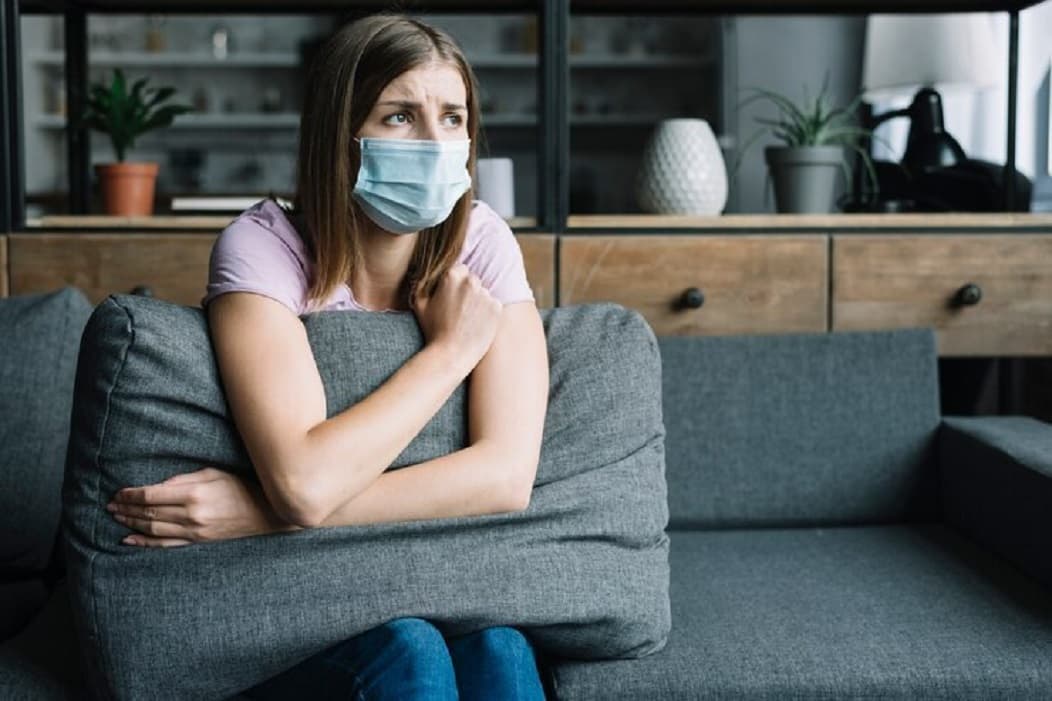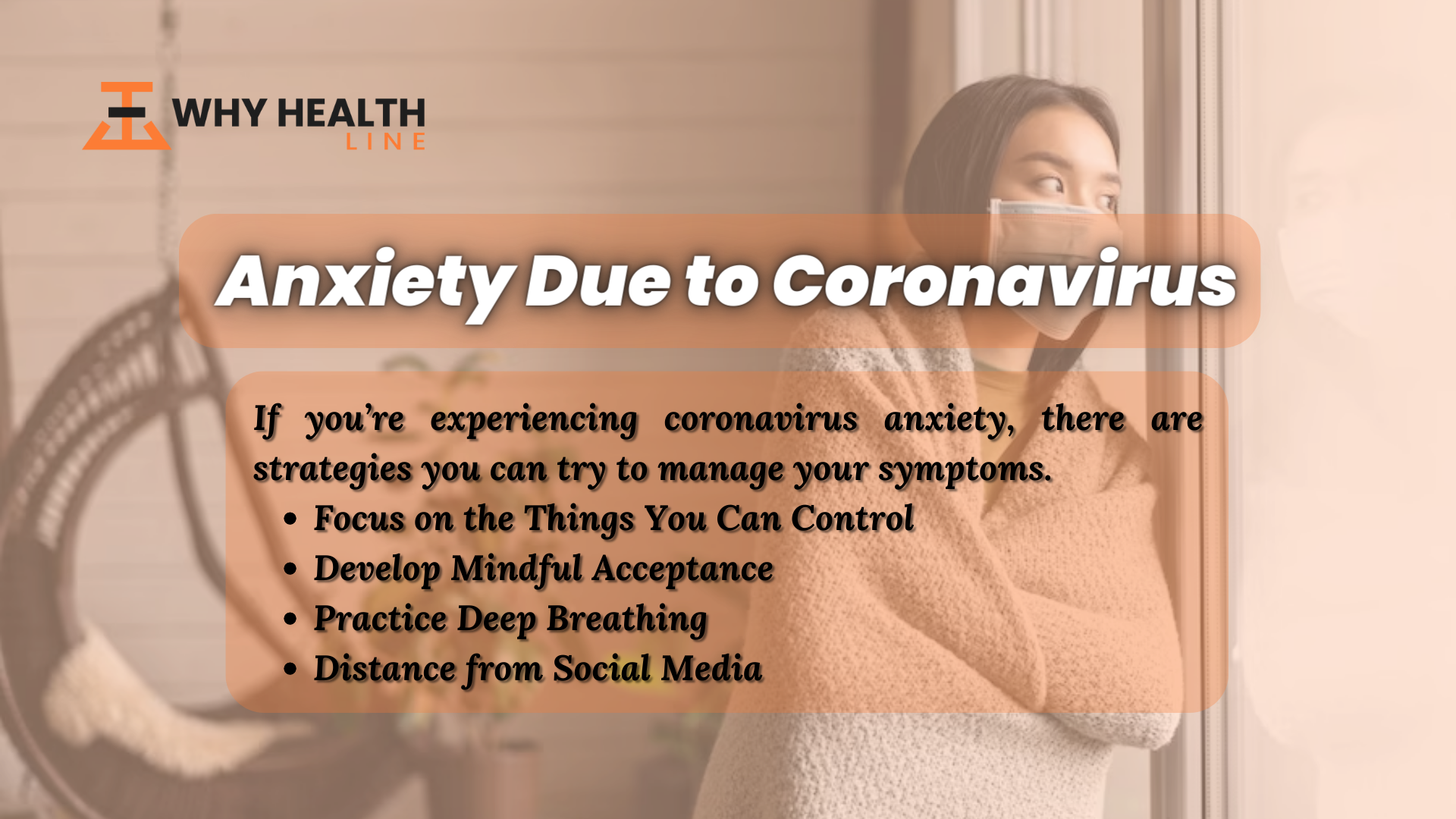Through times of uncertainty and unpredictability, it’s natural to experience feelings of stress, sadness, confusion, fear, or anger. And during Covid-19, if you’ve noticed an increase in anxiety, it’s important to be compassionate towards yourself, as these emotions are completely normal.
Moreover, dealing with the threats that come with this pandemic can be overwhelming. The fear of contracting the virus, practicing social distancing, and being flooded with conflicting information all add to one’s anxiety.
It doesn’t matter if you’ve been dealing with anxiety for a long time or if it’s something new to you; there are several ways to cope with the symptoms you may be experiencing.
With a few quick tips, you can start to feel more in control and less overwhelmed by the current situation. Remember, you are not alone in this, and seeking help is always a good idea.
What is Coronavirus Anxiety?
The coronavirus pandemic has resulted in a surge of mental health challenges for numerous individuals. The sheer number of people who are struggling with anxiety due to COVID-19 has led to the creation of a new term called Covid Anxiety Syndrome (CAS).
What Are Some Helpful Tips For Dealing With Anxiety About Covid-19?
If you’re feeling anxious or depressed due to the coronavirus, here are some helpful strategies you can try to alleviate your symptoms.
-
Read the News But Don’t Get Obsessed
Staying informed about what’s happening around you is important, but constantly scrolling through news headlines can cause anxiety and lead to repetitive thoughts.
To avoid this, it’s suggested to limit news consumption to a few times per day. You can set a time limit or aim to read the news for 15 minutes in the morning and 15 minutes in the evening.
-
Express Your Feelings
Expressing yourself through writing can be helpful in managing stress, particularly if you struggle to communicate verbally. However, if writing becomes too difficult or stressful, it may be best to take a break.
There are alternative ways to convey emotions, such as drawing, painting, playing music, or creating collages, which can be just as effective. It’s important to try out different methods to discover what works best for you.
-
Connect With Others
Feeling stressed out due to the global pandemic may make you want to distance yourself from others. However, it’s important to remember that people are going through similar experiences and can relate to your journey toward recovery.
Isolating yourself from others won’t help improve the situation. Instead, seek formal support through online or phone resources to help you cope during stressful times. This can include online support groups or other resources in your community.
-
Take Care of Your Body
It is also important to take care of your body by consuming a well-balanced diet. That consists of fresh fruits and vegetables, lean protein, and whole grains.
The Centers for Disease Control and Prevention (CDC) also suggests that getting sufficient sleep and engaging in regular exercise are important. Exercise can stimulate the release of endorphins, which can enhance your mood and reduce the levels of stress. Therefore, taking a walk, practicing yoga, or trying a new workout routine may help uplift your spirits.
How Can You Help Children With Anxiety About Covid-19?
In the difficult period of COVID-19, it’s crucial to be supportive and assist your child in managing their worries. Listen attentively to their concerns and acknowledge their emotions. Allow them to express themselves freely and create a safe space for them to do so. Also, ensure they feel comfortable opening up to you.
For your child’s physical and emotional well-being, adequate and quality sleep is also important. Moreover, encouraging your child to talk about their anxieties, spending time with them, writing about their thoughts, and helping them learn mindfulness techniques are all useful strategies to manage their stress.
How Can You Relax Despite Coronavirus Worries?
Make sure to take good care of yourself. It’s important that you eat regularly, exercise, get enough sleep, and avoid sources of stress. You should have control of your own life, so try dedicating some time to activities that lift your spirits, like listening to music, watching a film, reading a good book, or pursuing a hobby you’ve always wanted to try.
Also, remember to give your brain and body the rest they need by taking breaks throughout the day and getting enough sleep.
Final Thoughts
Dealing with coronavirus anxiety can vary from person to person. Whether it’s caused by a COVID-19 diagnosis, pandemic-related worries, or concerns about loved ones, the impact can be significant. If you find that coronavirus anxiety is greatly affecting your daily life, there are several ways to address it.
Practicing mindfulness meditation, deep breathing exercises, and maintaining a healthy lifestyle can be helpful coping mechanisms. Also, don’t hesitate to reach out to friends and family for social support.
FAQs:
How To Be Less Stressed About Covid?
During these times of COVID-19, it can be challenging to manage stress and maintain a sense of normality. Here are some helpful tips to help cope with stress and anxiety issues:
- Understand your anxiety.
- Stay informed but don’t continuously check the news.
- Focus on the things you can control.
- Stay connected, even when physically isolated.
- Take care of your body and spirit.
- Help others as it will make you feel better.
What Are The Five Techniques Used For Coping With Anxiety?
The most effective ways to deal with anxiety are as follows:
- Start with a ‘growth’ mindset.
- Notice how anxiety affects your body.
- Breathe.
- Talk yourself through it.
- Face the situation, and don’t wait for anxiety to go away.
How Do You Manage Stress During Quarantine?
During quarantine, many people feel isolated and helpless, with a sense of disconnection from the world and their usual responsibilities. But there are several helpful strategies you can employ in your daily routine to manage stress and anxiety.
- Establish a proper routine.
- Be as active as possible.
- Try to get a peaceful and quality sleep.



